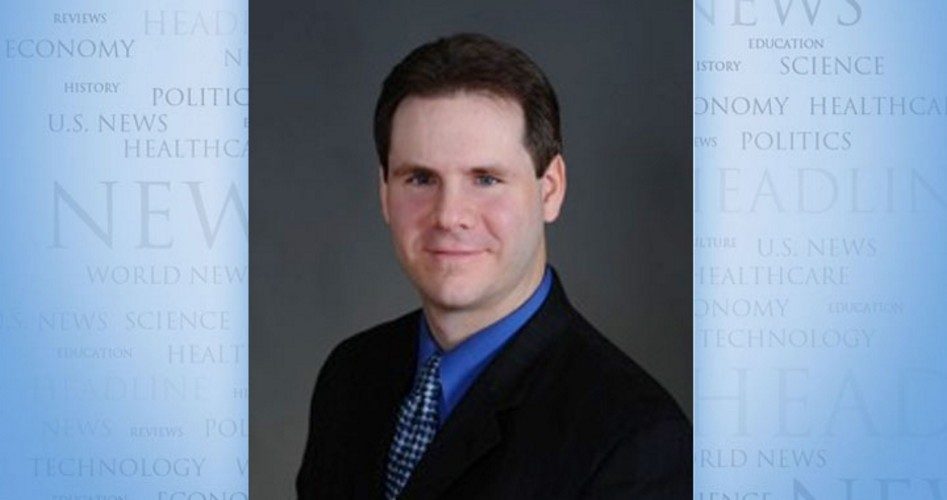
Irish Bob, the man some call “Beto” O’Rourke, dislikes Americans firing off what some people (incorrectly) call “assault weapons” so much that he’s vowed to seize them. He’s so passionate about that and other issues, in fact, that he fires off f-bombs from his assault mouth to prove it. Sadly, he’s not alone in exhibiting this progressive-disgorged habit — our whole society coarsened, conservatives are conserving the new profane status quo.
Irish Bob’s latest turpitude of the tongue was in response to the weekend’s Odessa-Midland mass shooting. “We don’t know how many have been killed. We don’t know the motivation,” he tweeted August 31. Ever the profound intellectual, however, he continued, “But here’s what we do know: This is f[****]d up.”
Irish Bob later used the f-word on national television (video below).
https://www.youtube.com/watch?v=TtR62v51eAY
Moreover, this is “far from the first time he’s done it. See here, here, here, and here,” points out American Thinker’s Monica Showalter. “Way to expose the kids, Beto,” she rightly laments.
In reality, Irish Bob is likely trying to appeal to the voting-age kids. Along with his skateboarding onto stage, live-streaming of his dental cleaning, and his Holden Caulfield-like, finding-himself road trip (middle-age angst?), it’s all authentic inauthenticity that says, “Hey, dude, I’m too cool for skool!” Yet his two-percent poll number shows that you can’t curse your way to political success.
More significantly, however, you also can’t curse your way to civilizational success, and Irish Bob is hardly alone in trying. Other Democrat politicians have joined him in recent years, and vulgarity permeates entertainment.
“More tellingly, this low-grade habit has seeped into news and commentary, with even conservative sources often now using terms such as a**, cr[*]p, s***storm, and WTF (with everyone knowing the acronym’s meaning),” as I wrote in 2017. “Why, I had to pass up a writing opportunity with a certain rightist entity a while back because, ironically, one of the editorial requirements was that one use asterisk-worthy language.”
This illustrates how, sadly, conservatives rarely see a liberal-disgorged norm they won’t ultimately conserve. Nonetheless, such concerns are generally sloughed off as inconsequential or even mocked as a sort of lexical prudishness. “We aren’t all Little Lord Fauntleroys,” as one reader wrote me after I inveighed against vulgarity years ago.
Now, Fauntleroy actually was a good role model. But despite being a Duke, I grew up in the Bronx, certainly heard it all, and definitely didn’t as a lad equal the little lord’s virtuousness. But I do know this: “If you take care of the small things,” noted Emily Dickenson, “the big things take care of themselves” — and vulgarity coarsens society.
Yet it’s increasingly accepted. This is perhaps best illustrated by how the aforementioned Monica Showalter — a woman I’m fond of and who does much good work, and also publishes some very good work (mine!) — opined that “there’s no need to be a prude about the use of the f-word on all occasions.”
“If a first-responder in an emergency, for example, or a military man in combat, or a firefighter fighting a monster wildfire, or an airline pilot in distress, uses that word,” she explains, “nobody considers that a problem.”
Well, call me Nobody.
Oh, I wouldn’t lecture such a person, obviously. But I do lament that people have been conditioned so as to make such reactions reflexive. I’m in good company in the Nobody category, too — with George Washington.
On August 3rd, 1776, our greatest of American heroes issued the following order to his men in combat:
The General is sorry to be informed that the foolish, and wicked practice, of profane cursing and swearing (a Vice heretofore little known in an American Army) is growing into fashion; he hopes the officers will, by example, as well as influence, endeavour to check it, and that both they, and the men will reflect, that we can have little hopes of the blessing of Heaven on our Arms, if we insult it by our impiety, and folly; added to this, it is a vice so mean and low, without any temptation, that every man of sense, and character, detests and despises it.
Washington wasn’t alone. Joan of Arc required the men leading her army, and their underlings, to refrain from swearing. Confederate general Thomas Jonathan “Stonewall” Jackson did likewise, once reprimanding a soldier for cursing at a mule (since the mule registered no objection); he’s also quoted as having once said, “Nothing justifies profanity.”
My father comes to mind as well. He was a prisoner of war in Nazi Germany, having been captured in battle, and was the toughest man I ever met. Yet he wasn’t given to cursing (he didn’t need an “emotional-support” animal, either. Snowflakes, take note). Guarding your tongue reflects not weakness, but strength of character.
Thus does Colossians 3:8 instruct, “But now put you also all away: anger, indignation, malice, blasphemy, filthy speech out of your mouth”; it’s why Jesus said that “what cometh out of the mouth, this defileth a man.”
Against this we have those who normalized vulgarity: The culture destroyers in entertainment, academia, and the media.
(For a more complete treatment of this topic — and an explanation of why profanity’s acceptance damages society — please read my 2017 essay, “Cussing & Cultural Decay.”)
As for cussin’ conservatives, they all no doubt had ancestors who’d have been aghast at their language. They should ask themselves: Whose lead do I want to follow? Great-grandpa’s, George Washington’s, the Bible’s, and Jesus’?
Or that of Hollywood and the leftist haters of civilization?


